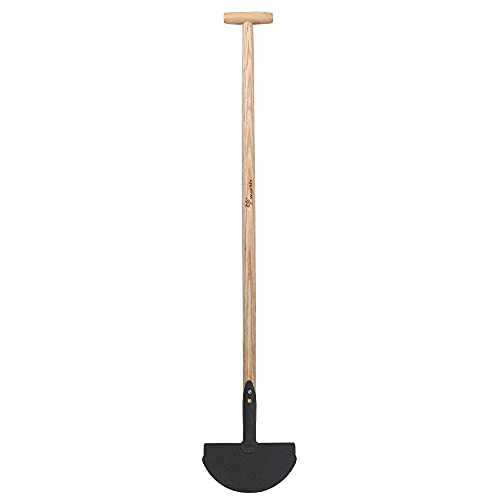Looking for HealthThe Disease Delusion. Jeffrey Bland. Published 2014.(I'm a board certified preventive medicine specialist, worked at or with CDC most of my career, taught at Emory Med School, Tulane, and was a state health official in a northern and a southern state.)Bought this book in 2017 somewhat impulsively on the enthusiastic recommendation of a stranger I met at a live outdoor musical performance, who said he was a retired musician and doctor. We'd both had a few beers. I'd never heard of Dr. Bland, the author; I have no pre-existing bias for or against him. The topic was one I suspected would interest a particular family member. Hmmm... well, we'd both had a few beers... and so this note is in part a repudiation of the "convenience" of 1-click purchasing.Later I read a number of reviews, and more about Dr. Bland, but the book was on the way, too late to abort delivery. It arrived while I was abroad, and sat unopened for 3 months, since, after reading about the topic, author, and the reviews, I decided to avoid telling the family member to open the package that I got for them. I was increasingly concerned they just might read it and believe it all (family member is not as much a critical scientist as I; family member perhaps has had one or two college level science classes, I've had at least 50, including 2 post doc degrees at Harvard with concentrations in public health, biostatistics, and clinical decision analysis - and some technical work at MIT).The book was not cheap (list 26.99), so I read enough to try to inform this note for the benefit of others, if not myself, but as I read I titrated my ongoing assessment of the value/harm of the book against the value of my time and the importance of reading more (either for my edification, or to inform others in this note).Near the end, the author calls this book "an expression of my view of the future of medicine." Since I can confirm that he does offer HIS VIEWS in this book, it seems fair to report my own views, here. In my own view, this book is a bit narcissistic, perhaps written in search of book sales and self-promotion, but also, I will grant, partly in search of coherence regarding disease (or health) science...which I think escapes the author… as this synthetic attempt mixes anecdotes in a confusing way with selected observations from science literature of quite varying robustness and currency. He tells interesting stories and says many true things, but overly simplifies, and selects information in a manner to serve "his view" (and if one were a tad cynical, one might imagine, his institute/business).In MY view, he is not up to speed on current literature and best thinking about chronic disease etiology, which is rapidly changing. As a crude but quickly verifiable instance the index does not mention "biome", "microbiome", "intestinal flora", "intestine", "gut" in its treatment of chronic disease.Near the beginning, the book asserts an undeniable, but therefore hardly interesting, premise: that genes don't explain everything. The premise that "To win the battle [with chronic disease], we will have to change the messages our lifestyle and environment are sending to our genes. ... That is what functional medicine is all about." is almost to try to put a brand (‘functional medicine’) on a truism. Also seems he's had some success doing that... but that is not what science is all about.As a statistician, I confess to near anaphylaxis when I see folk trained as scientists try to persuade the great unwashed, of truisms, via anecdote, for a price. Even good intentions do not relieve the educated of moral responsibility for teaching bad thinking. Even if >90% (or even all) of the facts woven into the story were correct and fairly representative, one is still culpable. Sadly, people easily remember a story, not so well a study. Sadly, people are entertained by and pursue stories; choosing to read correctly designed studies is an acquired taste. Virtue cometh not easy. Alas, criticism does…Life is a zero sum game; the surest way to win the battle with chronic disease is not very complicated: die young. Getting old is indeed often the pits, but still, it is often preferred to the alternative. I'm now pretty old, and I've come to enjoy having seen a positive arc of history in a number of countries, and to fear the power of undisciplined persuasion. I understand very well the concept of and potential benefits of extending QALYs, but I want to see a study, not a series of stories. I also understand the limits of the QALY as a measure of a life.Making it your purpose in life to pursue hopefully a bit longer and a bit healthier life at the expense of great adventures, the joys and pain of deeply sharing family stress, many all-night political or artistic or mathematical or philosophical debates, life-saving disaster intervention efforts...even wild sex and feasts galore...? Perhaps OK for you, but seems a little naval-gazing-ish. And as a wag might say, "so I then realized, what's the point of living?"One should perhaps be more mindful that life is a zero sum game; whether at three score and ten, or four-score, no-one gets out alive. Whether we are ascetics or epicureans, seems to make sense to share joy and virtue, as best we can envision these, and as best we are able, while we are here. B^)And if there's an afterlife in your own hopeful/ faithful view of the future, no serious faith of which I’m aware grants admission to heaven based on one’s effort to avoid chronic disease or old age. Again, what would be the point?My copy of Disease Delusion is safely in a recycle bin to protect the time and interests of those around me. Again, my view, of course.55
 {heart_count} 个赞
{heart_count} 个赞 将帖子固定到顶部
将帖子固定到顶部 复制链接
复制链接 编辑
编辑 删除
删除 {heart_count} 个赞
{heart_count} 个赞 将帖子固定到顶部
将帖子固定到顶部 复制链接
复制链接 删除
删除 {heart_count} 个赞
{heart_count} 个赞 将帖子固定到顶部
将帖子固定到顶部 复制链接
复制链接 编辑
编辑 删除
删除 {heart_count} 个赞
{heart_count} 个赞 从顶部取消固定帖子
从顶部取消固定帖子 复制链接
复制链接 编辑
编辑 删除
删除 {heart_count} 个赞
{heart_count} 个赞 从顶部取消固定帖子
从顶部取消固定帖子 复制链接
复制链接 删除
删除 {heart_count} 个赞
{heart_count} 个赞 从顶部取消固定帖子
从顶部取消固定帖子 复制链接
复制链接 编辑
编辑 删除
删除





 复制链接
复制链接 编辑
编辑 删除
删除 删除
删除 复制链接
复制链接 编辑
编辑 删除
删除 删除
删除
















